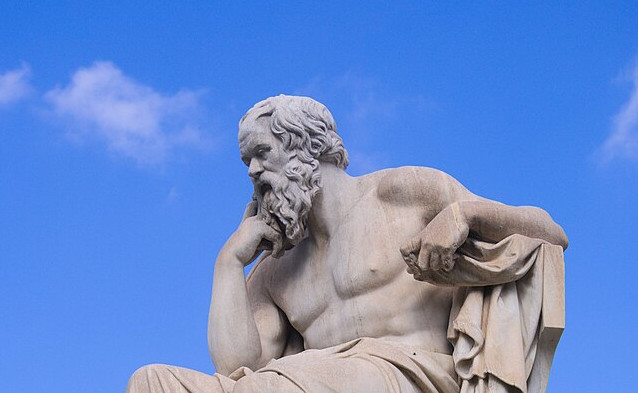Introduction:
Wisdom doesn’t emerge overnight. It’s not bestowed upon us by chance or simply accumulated with age. Wisdom is cultivated—deliberately, painstakingly, and through a commitment to understanding ourselves and the world around us. At the heart of this process lies reflection, a quiet yet profound practice that allows us to learn from our experiences, refine our choices, and align our actions with our values. Reflection transforms life’s chaos into clarity, its hardships into lessons, and its fleeting moments into meaningful insights.
In this post, we’ll explore how reflection helps us grow wiser, and we’ll share practical exercises to help you deepen this practice and make choices that honor your true self.
1. Reflection as the Mirror of Growth
Reflection is the bridge between action and understanding. It allows us to step back and observe our experiences without judgment, to extract meaning from the messiness of life, and to chart a clearer path forward. Without reflection, we risk repeating mistakes, losing sight of our values, and wandering through life without purpose. Reflection is what transforms a bad day into a valuable lesson, a misstep into a stepping stone, and a challenge into an opportunity for growth.
Consider this: every experience you’ve had contains a nugget of wisdom, but it’s buried beneath the noise of emotion, distraction, and routine. Reflection is the act of digging for that wisdom, dusting it off, and allowing it to guide you. It’s not about living in the past, but about learning from it.
2. The Balance of Questioning and Accepting
One of the most profound elements of reflection is its ability to strike a balance between questioning and accepting. It’s about asking ourselves the tough questions—Why did this happen? What could I have done differently? What did I learn?—without falling into the trap of self-criticism. At the same time, it’s about accepting that some things are beyond our control and moving forward with grace.
Reflection is not a tool for berating ourselves over failures or missteps. It’s a process of gentle inquiry that builds self-awareness and compassion. When we reflect with kindness, we begin to see patterns in our behavior, uncover hidden motivations, and make better choices aligned with our values.
3. Exercises for Cultivating Wisdom Through Reflection
Here are three practical exercises to incorporate reflection into your daily life and foster wisdom:
a. The Daily Debrief:
At the end of each day, set aside five minutes to ask yourself:
- What went well today, and why?
- What challenges did I face, and how did I respond?
- What can I learn from today to improve tomorrow?
Write down your answers in a journal. Over time, you’ll notice patterns that reveal your strengths, areas for growth, and recurring opportunities to align with your values.
b. The Pause-and-Ask Technique:
In moments of decision-making, pause and ask yourself:
- Is this choice aligned with my long-term values and goals?
- How will this decision impact my well-being and the well-being of others?
This practice cultivates mindfulness in action, helping you make wiser choices in the moment.
c. The Weekly Reset:
Set aside 30 minutes each week to reflect on the bigger picture. Consider questions like:
- What progress did I make toward my goals?
- What lessons did I learn this week?
- How can I realign my actions with my values?
Use this time to recalibrate and set intentions for the week ahead.
4. Reflection and Resilience
Reflection doesn’t just make us wiser; it makes us more resilient. When we take time to process and learn from our experiences, we build a sense of inner strength that allows us to face future challenges with calm and clarity. Reflection reminds us that even the hardest moments carry valuable lessons and that we are always capable of growth.
In the face of setbacks, reflection acts as an anchor, grounding us in our values and reminding us that every failure is a step forward. It helps us avoid being swept away by the tide of regret or self-doubt and keeps us focused on the bigger picture.
5. Wisdom as a Lifelong Practice
Wisdom isn’t a destination; it’s a journey. It’s cultivated one reflection at a time, one lesson at a time, one intentional choice at a time. By committing to the practice of reflection, we become active participants in our own growth. We stop drifting through life and start steering it.
Wisdom isn’t about knowing all the answers—it’s about asking the right questions. It’s about approaching life with humility, curiosity, and a willingness to learn. And it’s about using the insights we gain to make choices that honor our values, strengthen our character, and contribute to a life of meaning and purpose.
Conclusion:
Reflection is the compass that guides us through life’s complexities, helping us navigate challenges and uncover truths about ourselves. By embracing reflection as a daily practice, we cultivate the wisdom needed to grow into our best selves.
At Improvemynt, we believe that the small act of pausing to reflect can have a profound impact on your personal growth. Start small. Take a moment today to reflect on what you’ve learned, how you’ve grown, and what you can do to move closer to the life you want. With each reflection, you’re building a foundation for a wiser, more intentional tomorrow.
